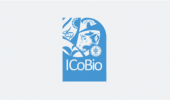Syllabus of Plant Biology Doctor Program
- Last modified at 12 March 2021
Course Description
Scientific Philosophy (2(2-0))
Scientific Communication and Ethics in Biological Sciences (2(1-1))
This course describes how new science is being produced and communicated. Research proposal and scientific writing. Editorial corresponding with scientific journal and community. Ethics in science production and communication.
Analysis and Presenting Biological Data (2(1-1))
This course discusses how techniques to obtain or generate biological data from molecular and cellular to ecosystems, starting from planning and designing, analyzing and interpreting correctly, as well as effectively presenting the results of the analysis in scientific reports and communication, such as dissertations, scientific presentations and posters, as well as manuscript for publication in scientific journals; techniques for making and writing scientific research proposals and dissertations are also thoroughly discussed in this course. This course is completed with structured assignments and exercises to apply the techniques to obtain, analyze and present biological data with the main results in the form of a dissertation research proposal draft, which is also enriched with the practice of making scientific presentations and posters, as well as criticizing and writing a manuscript for publication in scientific journals.
Presentation in Scientific Meeting (1(0-1))
This course is one way of communication media to improve scientific communication competencies for students at national or international scientific forums. Students must make an oral presentation at the forum. Students can present part of the results of dissertation research. Participation is proven by invitation letter and certificate.
Written Qualification Exam (2(0-2))
The doctoral program written qualification exam is a form of evaluation in the form of a written test that is compulsory for doctoral program students to ensure mastery of knowledge and readiness to conduct research and eligibility as a doctoral candidate.
Oral Qualification exam (2(0-2))
The doctoral program oral qualification exam is a form of evaluation in the form of an oral exam that is compulsory for doctoral program students to ensure mastery of science and readiness to conduct research and its eligibility as a doctoral candidate. An oral qualification exam can be taken if a student has passed a written qualification examination.
Colloquium of Doctor Program (1(0-1))
Colloquium is one of the scientific communication media for SPs-IPB students to express the substance and problems that will be subject to dissertation research and increase scientific insights. Students present a dissertation research plan that has been consulted with a supervisory commission. Colloquium is held in front of students, supervisors, and lecturers. The final results of the colloquium in the form of research proposals that are ready to be used as a reference in the implementation of dissertation research.
Research Proposal (2(0-2))
This research proposal subject requires students to write a dissertation research plan proposal which is completed with a literature review.
Dissertation Seminar (1(0-1))
The seminar is the presentation of dissertation research results in an SPs scientific forum to disseminate research results, both in writing and orally, to absorb input from the forum to perfect the dissertation, add scientific insights, and improve scientific communication competencies.
Dissertation Research (12(0-12))
It is the final project of the doctoral student as one of the graduation requirements that includes research activities both in the laboratory and in the field and the writing of a dissertation.
National/international/proceeding scientific publication (2(0-2)/3(0-3)/2(0-2))
Is part of the dissertation research activity which is poured into scientific articles published national/international/ scientific journals or international proceeding
International Scientific Publication (3(0-3))
Is part of the dissertation research activity which is poured into scientific articles published international scientific journal
Final Exam (3(0-3))
The final exam of Doctor program is the final stage of evaluation after the doctoral program student undertakes research activities, dissertation writing, and seminars. This closed exam is intended to assess the ability of doctoral students to defend the material contained in the dissertation and is a test of the ability to determine the degree. The scope of the dissertation exam includes a draft dissertation and comprehensive knowledge of students related to competencies (science and methodology), thinking (analysis, synthesis), communication and solutions that are directly and indirectly related to the dissertation. Doctoral students who will take a closed examination must meet the academic and administrative requirements set by the Graduate School of IPB.
Advanced Plant Physiology (2 (2-0))
The course reviews and discusses special and current topics or issues in plant physiology which are concerns of the international scientists, such as novel finding of something or phenomena in plants or certain plant. The topics are arranged thematically, such as what new in membrane transport, including aquaporin, in roots respiration; what happens with the physiology of epiphytic and carnivorous plants. Fundamental processes in photosynthesis of C3, C4 and CAM plants along with their photosystem structures and functions; plant responses, particularly its photosynthetic capacity, to the increasing CO2 and global warming, the impacts of extreme environmental conditions to plants in general and to food producing plants in particular; the physiology of plants capable of accumulating heavy metals and/or potentially toxic substances, and their utilization in phytoremediation (environmental issues) and in phytomining (commercial issues).
Transport and Plant Nutrient Metabolism (2 (2-0))
This course discusses the principles of plant nutrients from classical to current knowledge, their transport and metabolism in plants. Topics studied include the definition and classification of plant nutrients, nutrient physiology, nutrient availability, nutrient movement from soil to plants; absorption and transport which includes uptake ions, short and long term transport in plants, nutrient mobility in phloem, physiological and molecular overview of transport through ion channels, transporters and other parts of the membrane; assimilation and function of nutrients in plants including macro nutrients, biological N fixation, micro nutrients; ecological, genetic and molecular aspects of nutrients, genetic variation in nutrient uptake, nutrient competition, plant adaptation to nutrient deficiency and poisoning.
Plant-Microbe Interactions (2 (2-0))
This course explains the interactions between plants and microbes with an emphasis on knowledge about symbiotic interactions and their application in agriculture. The material provided starts from the types of interactions, nitrogen-fixing symbiosis, carbon-nitrogen metabolism, processes and genes involved in symbiosis, approaches or methods that can be used in the analysis of interactions between plants and microbes, the use of symbiosis in agriculture. Also limited to the molecular aspects of interactions that are pathogenic.
Plant Molecular Biology (2 (2-0))
Plant Molecular Biology is an in-depth course for Plant Biology doktor students or enrichment course for other related doctoral students. The course will cover the topics on plant genome, its organization, and function; protein synthesis, folding, degradation, sorting, and function; epigenetics in plant; advanced technique in plant molecular biology, including plant gene editing; advanced analysis of genomic, transcriptomic, proteomic, and metabolomic related to plant function; application aspects of plant molecular biology in plant biology, agriculture, dan health. The course will be delivered through class or online class, discussion, assignments, and student presentation.
Genetic of Plant Physiology (2 (2-0))
This course discusses genetic organization, exons and introns, structural genes, regulation of gene expression; controlling elements and gene function; selective filtering; isozymes and their use as genetic features and tools; physiology and genetics of parasitic and host interactions; genetic control of seed protein; mutants that affect photorespiration; flavonoids and carotenoids; mutants and growth regulators; DNA transfer into plants; auxotropic mutants in plants; the role of genetic physiology in plant breeding.
Population, Community and Ecology System (2 (2-0))
This course explains the understanding of community populations and ecological systems. The definition of population includes the characteristics of the population, density, birth, death, sex ratio, individual structure in the population, population distribution and population growth patterns. The definition of community includes the characteristics of the community, community development, community organization and community functions. Understanding the ecological system covers the theories and basic principles of the ecological system, the theory of balance in ecological systems, Thermodynamic Laws 1 and 2, The functions of the components that exist in ecological systems, food webs, the basic principles of the environment and the role of ecological systems in agricultural development.
Tropical Plant Conservation Strategy (2 (2-0))
This course discusses the value of natural tropical biodiversity; loss of tropical biodiversity; strategies for conservation of tropical biodiversity; national policies in the conservation of tropical biodiversity; encouragement of international environmental policies in the conservation of tropical biodiversity; incentives for local biodiversity conservation; management of tropical biodiversity in the human environment; species conservation, population and genetic diversity; human resource management to protect tropical biodiversity.
Phytogeography and Diversity of Tropical Plants (2 (2-0))
This course discusses the distribution of the world's tropical plants, the tropical characteristics of African flora, Malesiana and Latin America. Types of foreign exchange earners and timber and wood cutting in the western and eastern parts of Indonesia, as well as families and main types of inhabitants of Indonesia's large islands. Variety of plant symbiosis from macrosimbion and micro symbionts in tropical natural ecosystems and agricultural activities, trophobiosis optimization, light interaction and plant productivity related to land gradation analysis in building multistrata mimics of tropical plant communities towards optimum local productivity.
Taxonomic Philosophy (2 (2-0))
This course discusses the development of classification thinking from Theophrathes to the present; intuition, dictum, Hennig's theory; the intervention of evolution and cladistics in the classification mindset; the contributions of taxonomic study to the society; the roles and responsibilities of taxonomist (person with taxonomic expertise).
Intricacy of Species Concepts (2 (2-0))
This course discusses the development of species concepts from the Linneaus period to the present, starting with the species concepts of morphology, biology, internodon, and composite; and discussed the application of these concepts in solving taxonomic problems.
Plant Phylogeny and Systematics (2 (2-0))
This course discusses the historical development of the concepts of analogy and homology, parallelism and convergence, phylogenetic and phyletic; developing dendrogram into phylogeny trees, phenograms, cladograms and the meaning of the classification. The use of various data sets in phylogenetic analysis, the main themes in the evolution of vascular plants and cultivated plants, and how to draw conclusions from phylogeny by using multi data sets ranging from morphology to genome data.
Evolution of Plant Diversity (2 (2-0))
This course discusses the diversity of plants from various perspectives, such as the diversity of morphology, anatomy, physiology, and genetics associated with the evolution and ecology of the plant. Besides that, it also discusses the adaptation mechanism of various plant species to certain ecology. The latest topics from the aforementioned aspects will be the subject of student discussion.
Special Topic (3(0-3))
This course is intended for doctoral students by research. Discussions for specific topics are given by the supervising commission on topics related to dissertation research, which can be in the form of preliminary research and / or literature study.
















































.png)







Login
LoginSitemap
map